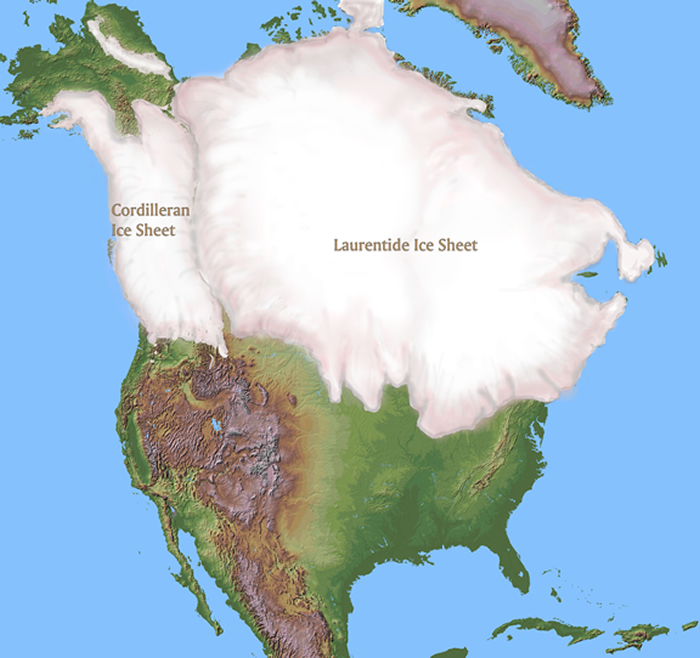The most comprehensive modeling yet carried out on the likelihood of how much hotter the Earth's climate will get in this century shows that without rapid and massive action, the problem will be about twice as severe as previously estimated six years ago - and could be even worse than that.
The study uses the MIT Integrated Global Systems Model, a detailed computer simulation of global economic activity and climate processes that has been developed and refined by the Joint Program on the Science and Policy of Global Change since the early 1990s. The new research involved 400 runs of the model with each run using slight variations in input parameters, selected so that each run has about an equal probability of being correct based on present observations and knowledge. Other research groups have estimated the probabilities of various outcomes, based on variations in the physical response of the climate system itself. But the MIT model is the only one that interactively includes detailed treatment of possible changes in human activities as well - such as the degree of economic growth, with its associated energy use, in different countries.
Study co-author Ronald Prinn, the co-director of the Joint Program and director of MIT's Center for Global Change Science, says that, regarding global warming, it is important "to base our opinions and policies on the peer-reviewed science," he says. And in the peer-reviewed literature, the MIT model, unlike any other, looks in great detail at the effects of economic activity coupled with the effects of atmospheric, oceanic and biological systems. "In that sense, our work is unique," he says.
The new projections, published this month in the American Meteorological Society's Journal of Climate, indicate a median probability of surface warming of 5.2 degrees Celsius by 2100, with a 90% probability range of 3.5 to 7.4 degrees. This can be compared to a median projected increase in the 2003 study of just 2.4 degrees. The difference is caused by several factors rather than any single big change. Among these are improved economic modeling and newer economic data showing less chance of low emissions than had been projected in the earlier scenarios. Other changes include accounting for the past masking of underlying warming by the cooling induced by 20th century volcanoes, and for emissions of soot, which can add to the warming effect. In addition, measurements of deep ocean temperature rises, which enable estimates of how fast heat and carbon dioxide are removed from the atmosphere and transferred to the ocean depths, imply lower transfer rates than previously estimated.
Climate change odds much worse than thought
The study uses the MIT Integrated Global Systems Model, a detailed computer simulation of global economic activity and climate processes that has been developed and refined by the Joint Program on the Science and Policy of Global Change since the early 1990s. The new research involved 400 runs of the model with each run using slight variations in input parameters, selected so that each run has about an equal probability of being correct based on present observations and knowledge. Other research groups have estimated the probabilities of various outcomes, based on variations in the physical response of the climate system itself. But the MIT model is the only one that interactively includes detailed treatment of possible changes in human activities as well - such as the degree of economic growth, with its associated energy use, in different countries.
Study co-author Ronald Prinn, the co-director of the Joint Program and director of MIT's Center for Global Change Science, says that, regarding global warming, it is important "to base our opinions and policies on the peer-reviewed science," he says. And in the peer-reviewed literature, the MIT model, unlike any other, looks in great detail at the effects of economic activity coupled with the effects of atmospheric, oceanic and biological systems. "In that sense, our work is unique," he says.
The new projections, published this month in the American Meteorological Society's Journal of Climate, indicate a median probability of surface warming of 5.2 degrees Celsius by 2100, with a 90% probability range of 3.5 to 7.4 degrees. This can be compared to a median projected increase in the 2003 study of just 2.4 degrees. The difference is caused by several factors rather than any single big change. Among these are improved economic modeling and newer economic data showing less chance of low emissions than had been projected in the earlier scenarios. Other changes include accounting for the past masking of underlying warming by the cooling induced by 20th century volcanoes, and for emissions of soot, which can add to the warming effect. In addition, measurements of deep ocean temperature rises, which enable estimates of how fast heat and carbon dioxide are removed from the atmosphere and transferred to the ocean depths, imply lower transfer rates than previously estimated.
Climate change odds much worse than thought





